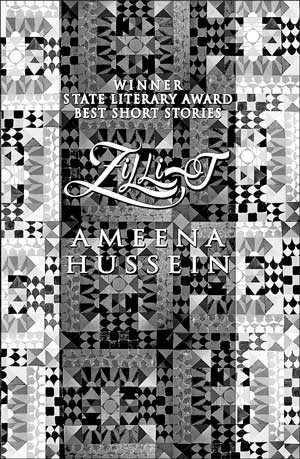Saturday Feb 14, 2026
Saturday Feb 14, 2026
Saturday, 23 February 2019 00:00 - - {{hitsCtrl.values.hits}}
 Much like the Indian born writer Rohinton Mistry who sets his stories within the backdrop of his dwindling Parsi community, Sri Lanka’s Ameena Hussein often sets her stories and essays within the relatively small microcosm of the Sri Lankan Muslim community.
Much like the Indian born writer Rohinton Mistry who sets his stories within the backdrop of his dwindling Parsi community, Sri Lanka’s Ameena Hussein often sets her stories and essays within the relatively small microcosm of the Sri Lankan Muslim community.
Although as a whole, Lankan Muslims seem increasingly visible, there are few insights into the customs, traditions, dreams and aspirations of this social group. Hussein’s writings provide unsuspected insights into this world, from an insider’s perspective, astonishing us with both its normalness and restrictions that shape behavioural patterns.
The assortment of 16 stories in Zillij don’t build up to a particular theme or pattern; rather, they are a collection of seemingly unrelated stories that can be read in any particular order at the dictates of your whim.
What they do have in common is that as a whole, all of these stories open vistas you may not have seen before, viewpoints that are thought provoking and that will linger with something to think about – a detail that may push you out of your comfort zone to appreciate a different position.
The title then is aptly chosen, for Zillij is the captivating Islamic traditional art of creating intricate mosaic design using hand cut tiles and one must step back to appreciate the whole.
Within Sri Lanka, we all live in different worlds and rarely are we united by ethnicity, religion, class or intellect. The characters and situations in Hussein’s stories reflect the multi layered nature of that society and quite often, until she lets a detail slip, you could imagine she’s writing about someone whom you know, someone who could belong to any ethnic or social group. The restless nature of today’s Lankans is brought out in these stories that do not shy away from travel or migration. To give you an idea of what you can expect:
The suave protagonist of ‘Muslim on the Periphery’ is unusual because he is Muslim but may be considered the norm in another setting; ‘The Glass Block’ will resonate with anyone who has stood humbly in line clutching a Sri Lankan passport and praying for a first-world visa; ‘More than Rain’ reflects the apathy forced upon us by a relentless life of one thing after another; ‘An Ordinary Death’ brings home the reality of unexpectedness in a day to day life; ‘White Girl’ while seeming to begin frivolously, highlights the hopelessness of under employed youth who see migration as the only answer to economic fulfilment; and hot on its heels, ‘The Immigrant’ shows that migration in itself may not fulfil our dreams and aspirations; the aging denizens of ‘Those Days’ turn a pragmatic page and recover control of their remaining future; ‘The Pain of Imagination’ runs parallel stories forcing you to keep up; ‘Comfort Food’ will unite you globally over a basic necessity like food, while decorum and a cultural rather than religious divide separates you; ‘Images of a Short Lived Love Affair’ blossoms into romance and is over before you get settled in; the ironical  nature of ‘Beauty’s Mother’ must strike home to anyone who has a beautiful but zealous daughter; ‘Now and Then’ has our prophetic Ola leaves heralding war while spreading destruction – thankfully now behind us; ‘Night Journey’ will pull you into a dream world of rapidly changing landscapes; ‘Nandana’ expands on an episode of the Mahavamsa whose thread of treachery lies close below the surface and finally, ‘Noombi Story’ relates a love story, ending it all on a happy note.
nature of ‘Beauty’s Mother’ must strike home to anyone who has a beautiful but zealous daughter; ‘Now and Then’ has our prophetic Ola leaves heralding war while spreading destruction – thankfully now behind us; ‘Night Journey’ will pull you into a dream world of rapidly changing landscapes; ‘Nandana’ expands on an episode of the Mahavamsa whose thread of treachery lies close below the surface and finally, ‘Noombi Story’ relates a love story, ending it all on a happy note.
(Sam Perera is a partner of the Perera-Hussein Publishing House which publishes culturally relevant stories by emerging and established Lankan and regional authors - for a primarily Lankan audience. Ph books are available everywhere books are sold and through www.pererahussein.com.)
ZILLIJ by Ameena Hussein
Winner – Best Short Stories: State Literary Prize
Published by the
Perera-Hussein
Publishing House
Rs. 750 in all
bookshops and www.pererahussein.com